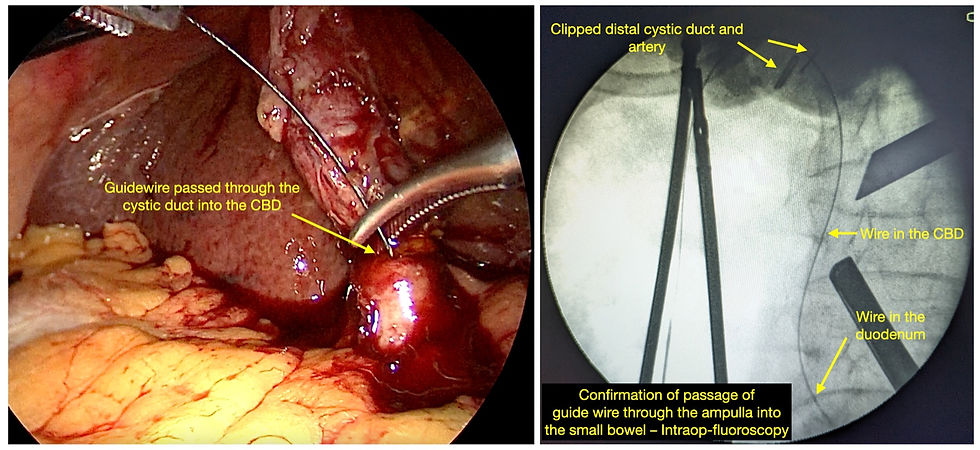Rendezvous Procedure: One-Stop Solution for Gallbladder and Bile Duct Stones
- Murugappan N
- Nov 2, 2025
- 2 min read
The rendezvous procedure is a minimally invasive approach designed to remove stones and restore biliary flow in a single stage. It combines laparoscopic surgery and endoscopic ERCP, improving safety and recovery for patients.

What Is the Rendezvous Procedure?
The procedure is performed when both gallbladder and CBD stones are present.
While you are under general anesthesia, a laparoscopic surgeon removes your gallbladder and threads a guidewire through the cystic duct into the small intestine.
An endoscopist then uses this guidewire to find and remove stones from the common bile duct using a camera and special tools passed through your mouth into the intestine.

Steps of a Rendezvous procedure - Bypassing the difficult aspect of passing a wire into the Common bile duct during ERCP by passing it laparoscopically during cholecystectomy 
Benefits for Patients
Combines stone removal and gallbladder surgery in one operation, potentially shortening your hospital stay.
Lowers the risk of complications like pancreatitis compared to traditional ERCP alone.
Usually results in faster recovery, less pain, and lower healthcare costs.
Safety and Recovery
The procedure is safe for most patients, with very high rates of stone removal and a low risk of major complications.
Most patients can return to normal activities within a week, and liver function usually returns to normal within one month after the operation.
Major complications are rare but might include bleeding, infection, or bile leakage, which are successfully managed in most cases.
What to Expect After the Procedure
Most people experience mild abdominal discomfort for a few days.
Hospital stay is usually short (1–3 days).
Follow-up includes blood tests and ultrasound to confirm the absence of retained stones.
The rendezvous procedure improves patient satisfaction and clinical results for those with gallbladder and bile duct stones, providing safe, effective treatment with a short recovery and a high level of success.



Comments